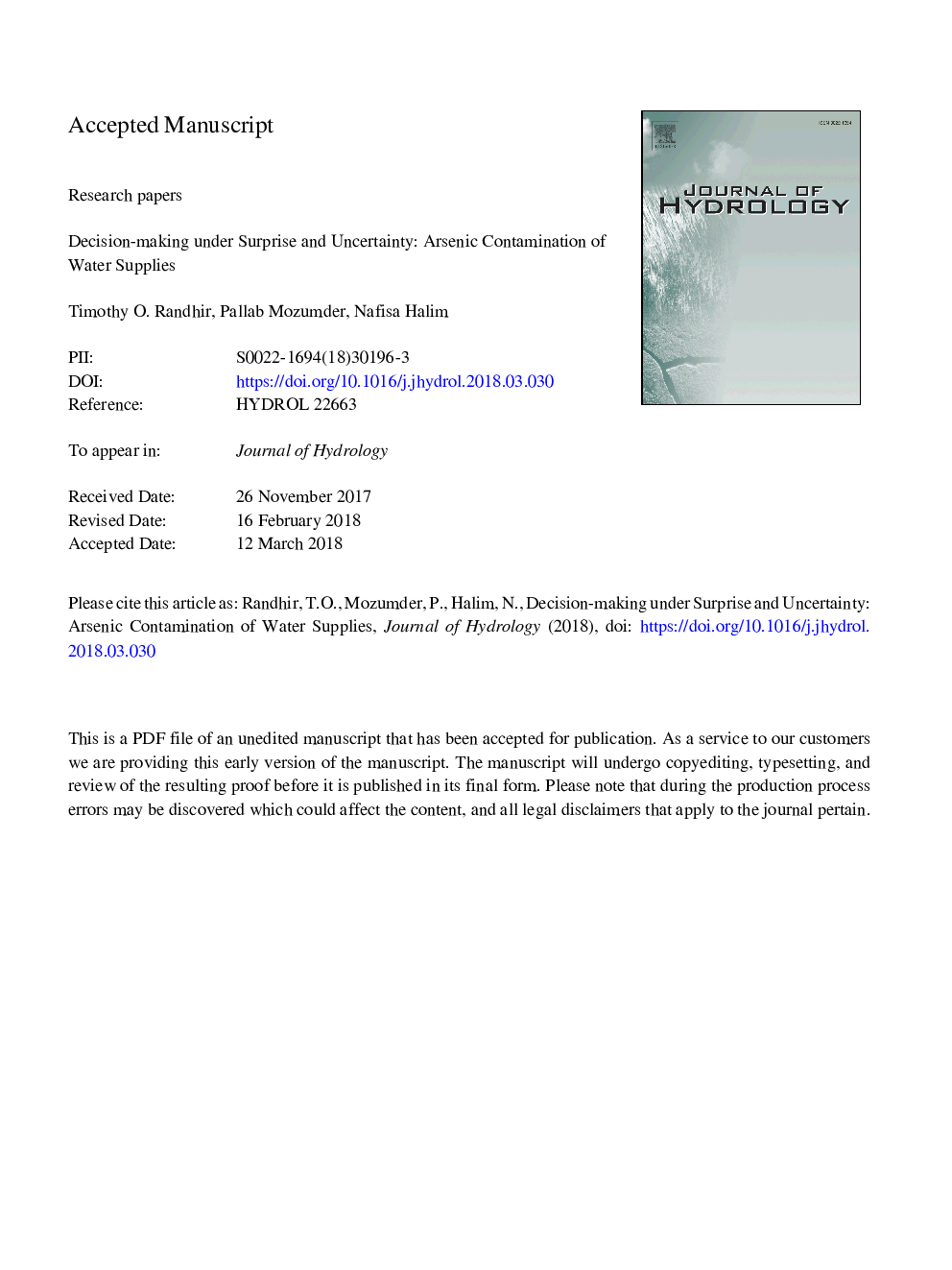| Article ID | Journal | Published Year | Pages | File Type |
|---|---|---|---|---|
| 8894810 | Journal of Hydrology | 2018 | 38 Pages |
Abstract
With ignorance and potential surprise dominating decision making in water resources, a framework for dealing with such uncertainty is a critical need in hydrology. We operationalize the 'potential surprise' criterion proposed by Shackle, Vickers, and Katzner (SVK) to derive decision rules to manage water resources under uncertainty and ignorance. We apply this framework to managing water supply systems in Bangladesh that face severe, naturally occurring arsenic contamination. The uncertainty involved with arsenic in water supplies makes the application of conventional analysis of decision-making ineffective. Given the uncertainty and surprise involved in such cases, we find that optimal decisions tend to favor actions that avoid irreversible outcomes instead of conventional cost-effective actions. We observe that a diversification of the water supply system also emerges as a robust strategy to avert unintended outcomes of water contamination. Shallow wells had a slight higher optimal level (36%) compare to deep wells and surface treatment which had allocation levels of roughly 32% under each. The approach can be applied in a variety of other cases that involve decision making under uncertainty and surprise, a frequent situation in natural resources management.
Related Topics
Physical Sciences and Engineering
Earth and Planetary Sciences
Earth-Surface Processes
Authors
Timothy O. Randhir, Pallab Mozumder, Nafisa Halim,
